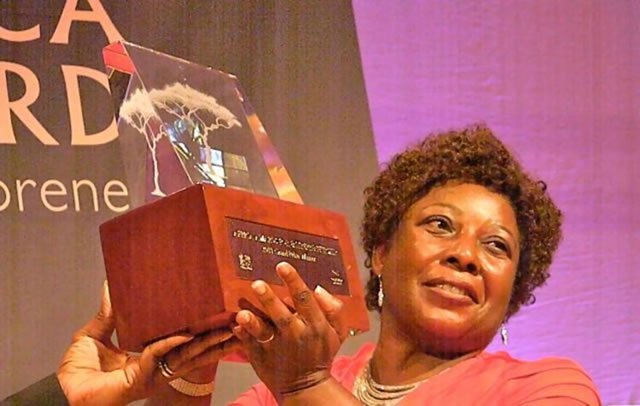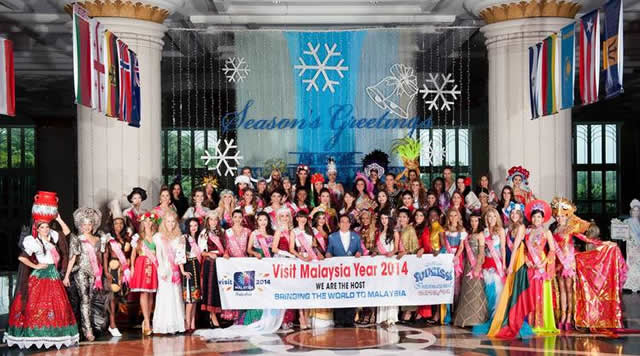Time to do more for women

Ruth Butaumocho
January is a busy month where both individuals and organisations take time to reflect on issues and events that took place the previous year.Now here we are on the cusp of a new calendar year, many of us vowing yet again to improve our lives one way or the other.
Although most of the New Year resolutions are never fulfilled, or even attempted, it is one ritual that people still use to affirm themselves to their goals, aspirations, dreams and wishes.
Popular resolutions include drinking less, eating better, getting fit — all health-related behaviour changes, making more money and yes, becoming a better person in the process.
Individuals also pledge to spend more time with family, or get more sleep, or save more money every pay day. As the year unfolds, gender activists will have already set the ball rolling, where they will be looking at grey areas in both economic and political landscape in the hope of improving on areas that need attention.
One of the critical areas in gender would be the consolidation of activities and programmes that are in place towards the attainment of gender equality in all spheres of influence as Zimbabwe and the rest of the world finalise on the Millennium Development Goals.
Already Zimbabwe has achieved gender parity in primary and secondary enrolment and completion rates in pursuit of MDG number three.
However, challenges still exist in tertiary education enrolment where universities say the number of female students enrolling is still low compared to their male counterparts.
It is also disheartening to note that the participation of women in decision making remained subdued last year. A progress report that was compiled by a parliamentary portfolio on the MDGs noted that overall the proportion of women in decision making in all sectors was below 40 percent.
Save for the few prominent names of women in decision making in the likes of Eve Gadzikwa, Divine Ndhlukula, Florence Ziumbe, Pindie Nyandoro, Chipo Mutasa and Farai Mpofu, decision making continues to be dominated by men.
That does not mean that there are not many women of integrity who are intellectually capable. It simply means that more needs to be done for organisations and companies alike to acknowledge that women are just as good as men.
Within that context it will be crucial for the Government to hammer on the gender policy that encourages both the public and private sector to prop up more women in decision making.
The onus should also be on the Government to initiate capacity building programmes for women parliamentarians, especially on the provision of the new Constitution so that the generality of women out there are fully aware of their rights and provisions as provided for in the constitution.
Female parliamentarians should also use the same initiatives to mentor and encourage their peers to take up positions of power at any level —even within their communities — so that they can prepare themselves for leadership in both the economic and political sphere.
The issue of economic empowerment remains an area of concern, with reports confirming that more men than women have actually benefited from a number of economic programmes that Government has introduced over the years.
Opportunities should also be availed for women in banking, mining, architecture, construction and telecommunications, among other crucial sectors of the economy.
Rather than pay lip service of what women ought to have in terms of quota allocation, the time is now right for women to be exclusively included in a holistic manner so that they can benefit as much as men.
Rather than relegate the economic empowerment of women to the Women’s Ministry, it should be the mandate of every ministry to allocate a portion of its activities towards economic empowerment of women.
The gender ministry would not be able to achieve such a Herculean task, considering that it has not been receiving adequate money from Treasury to fund some of its economic empowerment programmes.
This year, the gender ministry will streamline two of its empowerment programmes for women that had its funding reduced by 50 percent in the 2014 national budget presented on 19 December.
Although the ministry’s allocation increased by 6 percent from this year’s US$10,1 million to US$10,8 million for next year, the Women Development Fund which supports various programmes and policies aimed at advancing and empowering women was allocated US$2 450 000, down from US$2 500 000.
That development will see a reduction in the number of women that are expected to benefit from the revolving fund, meant for women who intend to venture into business but do not have collateral security.
Funding for gender mainstreaming, which is one of the core activities of the ministry, was also reduced by 50 percent from US$100 000 to US$50 000.
Presenting the 2014 National Budget, Minister of Finance and Economic Development Patrick Chinamasa said Government remains committed to empowerment of women and will therefore prioritise and support various programmes against a backdrop of limited resources.
“In addition to funding women’s empowerment programmes, a revised gender policy that is aligned to the Sadc Protocol on Gender and Development has been adopted by Government.
“The 2014 budget will support the implementation of this policy, which will institutionalise gender mainstreaming across all Government institutions,” he was quoted saying.
As the country moves towards the attainment of some of its set targets, women empowerment should be at the core of its activities. An empowered woman is an enlightened woman, and an asset to the nation.










Comments